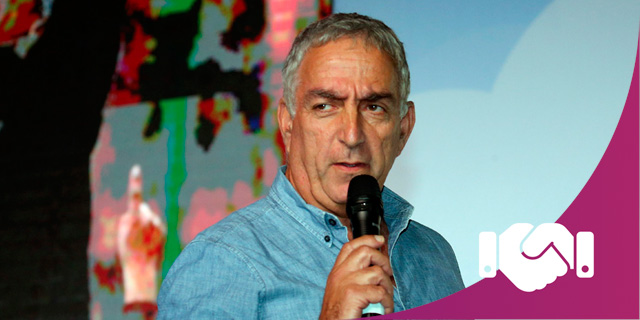Internet: between the Oasis of Freedom and Dystopia
Mati Kochavi, CEO and the founder of AGT International, sat down with Bill Clinton, a former president of the USA, to discuss the current state of the Internet as part of a joint interview on CNBC.
Kochavi presented the Internet as a driver of an irreversible change in the world as we know it. Yet, the very border-defying speed at which countless information is generated and presented on it may as well spell its doom unless proper global-reaching measures are taken. This is particularly relevant in the context of public and corporate security.
The concept Kochavi proposes rests on three Ps – prediction, prevention, and preparation. In an age of lightning-fast dissemination of misinformation, mass unrest caused by these is a real source of threat to public security. The reason for it is the lack of the ability on part of the authorities to predict the course of these events, despite the abundance of information circulated online.
To help make sense of this information and operationalize prevention and preparation, it is necessary to treat this issue as a global effort, just as the risks involved with it are of transnational character.
An analytical approach paired with machine learning and a concerted effort aimed at fact-checking and appropriate signalization of the validity of information sources on the Internet should make it easier to separate misinformation and propaganda from pure facts.
Cybersecurity as a concept and a set of tools plays an essential role here as it has been engaged in a constant arms race with the development of the Internet and threat actors on it.
In the 1990s, reminded Kochavi, during the tenure of Mr. Clinton, the Internet was a virtual home to no more than fifty functional websites. Mr. Clinton replied that he sent only two emails during his presidency, adding that sending confidential information was frowned upon even in an age when the Internet was both a less sophisticated and populated place.
In many ways, things have changed for the worse now, prompting a proper global response to emerging threats. To achieve this, Kochavi invited all stakeholders not to treat this effort as an attempt at introducing censorship. Sensitivity, as advocated by Kochavi, means promoting quality over popularity, particularly when presenting the users with a rank-based overview of the information sources.
A global system resembling a declaration of ingredients on food products or a film rating should be a welcome step ahead when it comes to online information sources, claims Kochavi. If the Internet is to remain a symbol of an idea of freedom, we have to adopt the sensitivity-based approach to its potential both for good and evil, he concludes.













